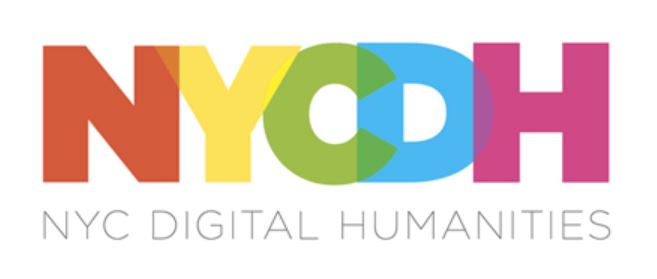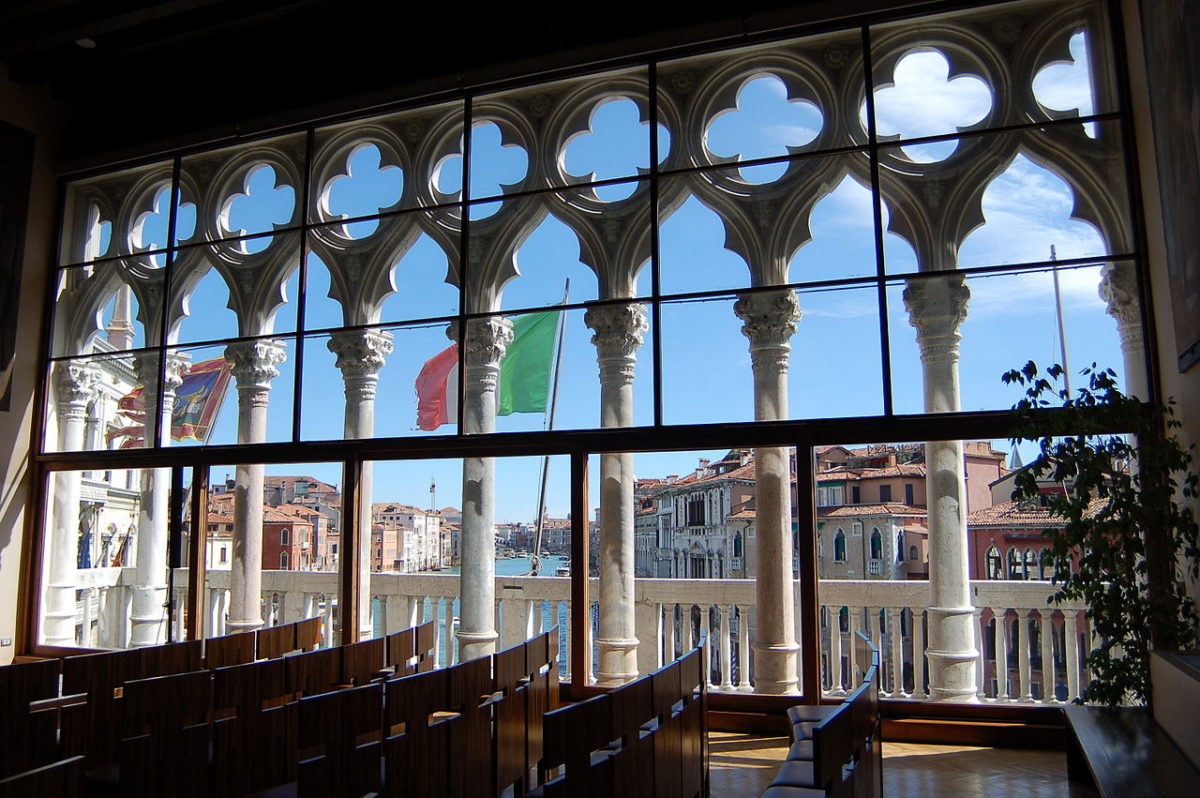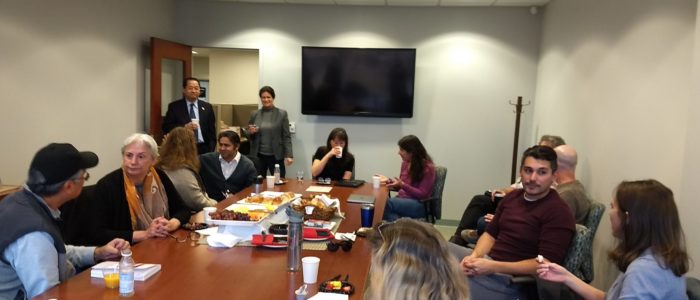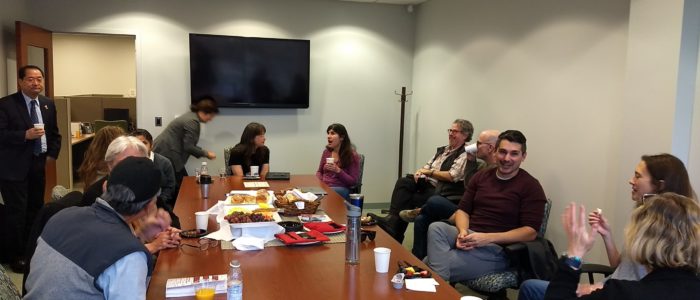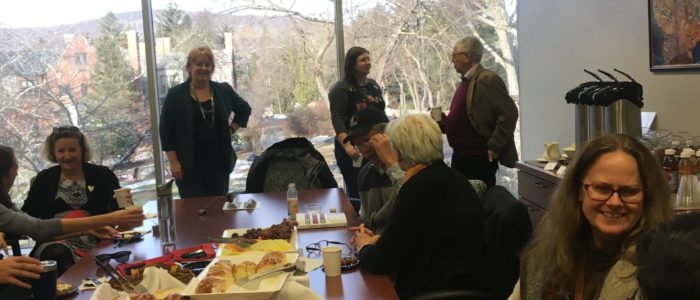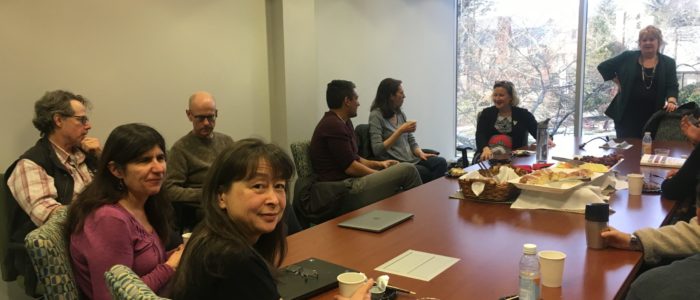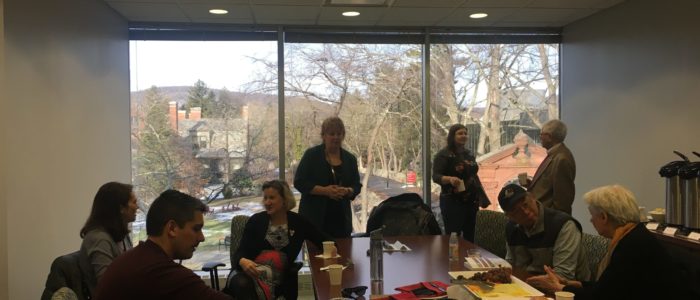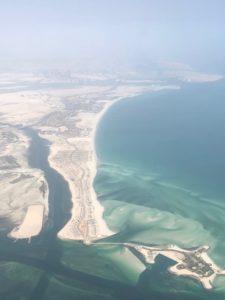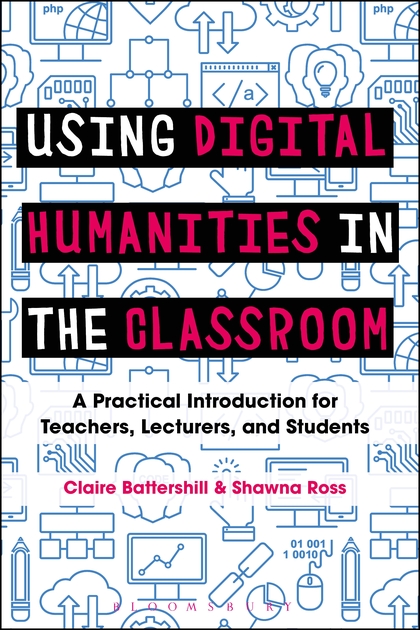The first edition of the Venice Summer School in Digital and Public Humanities, will be held from 6-10 July 2020, organized by the Venice Centre for Digital and Public Humanities (VeDPH) at the Department of Humanities (DSU), Ca’ Foscari University of Venice.
The Summer School aims at providing advanced and in-depth training in theories, technologies and methods of Digital and Public Humanities, focusing on cultural, archeological, historical, literary, and artistic materials. The school will give the participants the opportunity to engage in debates about digital and public cultural heritage and humanities research, while enhancing their competences and skills of digitizing materials and sources and for modeling, analysing and visualizing multimedia humanities data. All classes will be taught in English.
The VeDPH summer school is divided into four thematic strands:
(1) Digital Textual Scholarship
(2) Digital and Public History
(3) Digital and Public Art History
(4) Digital Archaeology and its Public
The School is composed by a series of plenary lectures, parallel workshops, and site visits. Lectures will describe the greater context in which these theories and methods will be applied: a world in which the work of scholars is routinely aided by computer-assisted techniques, with both old and novel problems, challenges and solutions. With a learning-by-doing approach, participants will reflect every stage of the realisation of a digital object and on how to make use of the data in own projects. Lessons and labs will be focused on modeling, retrieving, analysing, visualising, and publishing data created on relevant sites of the city of Venice (such as the Biblioteca Marciana, Archivio di Stato, Peggy Guggenheim Collection, Ghetto) and its surroundings (such as M9 Museum in Mestre, excavations at Torcello or Altino). Legal questions of intellectual property and publication licences will be covered, as well as the latest web developments, such as semantic web and linked open data technologies, in order to evaluate different data models for cultural heritage objects.
Strand #1: Digital Textual Scholarship
This strand focuses on the application of digital methods and technologies to literary and historical texts and documents, especially from Venetian archives and libraries. Introductory lessons on theories and best practices are accompanied by hands-on and laboratory sessions for their immediate implementation in collaborative project works. Participants are introduced to theories and best practices of digital scholarly editing. Aspects of textual materiality (digitisation, formal description and analysis) are covered as well as methods and standards for the encoding, annotation and transformation of texts (XML, TEI; XSLT). Finally, the integration into the semantic web (Linked Open Data, IIIF) will be preformed and tools for the enrichment, analysis and visualisation of textual data will be applied (CollateX, Natural Language Processing, Distant Reading). The strand includes a visit of the Biblioteca Nazionale Marciana.
Strand #2: Digital and Public History
This strand focuses on the application of digital techniques and a public approach to the development and presentation of historical research. The digital aspect revolves around some of the main tools used by digital historians, such as Text Mining, Network Analysis, and Historical GIS. The ‘public’ aspect is centred on the issues related to the research with the public and the dissemination beyond the classroom, from public memory to public sources to public engagement, with specific focus on topics such as TV, museums, and social media. The theoretical debate and the role played by digital and public historians in the changing landscape of the historical discipline are also considered. The strand includes a visit to M9-Museo del ‘900 in Mestre, to give the students a concrete example of how the past can be seen and shown through the digital & public lenses.
Strand #3: Digital and Public Art History
This strand focuses on the technological development and its cultural implications which occured in the arts sector over the last decades. In doing this, the digital aspect is approached both on the side of artistic production and the art system as well as on the side of museums and art historical representation. The issues of technological change, digital nativity, virtual realms and digital tools will be discussed at length and put in the context of past and recent artistic productions, art institutions and public sprawl. Both the theoretical debate and practical tools for digital art historians shall be explored by means of lectures and labs. The strand includes a visit to the Peggy Guggenheim Collection in Venice to give the students a concrete example of new digital and public approaches in art institutions. Eventually, the strand includes the opening of an art exhibition on the analog-digital relationship by Italian painter Aldo Sergio expressly organized for the Venice Centre for Digital and Public History.
Strand #4: Digital Archaeology and its Public
This strand focuses on theories and practices that archaeologists apply in surveys, remote sensing, spatial analysis, data collection, and data management. Participant will engage in digital strategies to analyze the heritage and visualize, share and communicate it to the public. They will approach digital heritage as a virtual tool to explore the mutual relationship between environment, humans and the past. Using the lagoon area as test case (Adria, Mira, Torcello, Altino and Caorle), the aim of the strand is to learn how critically archaeology may be engaged with the “digital”. We will work on questions such as “why, by whom and for what purpose do we cultivate digital technologies”. Digital data and public(s) are deeply connected, and nowadays archaeologists are not only asked to build set of coherent digital data from the surveys, but they have to foster methods for engaging new audiences and facing the global societal challenges. Digital tools may help the de-colonization of the archaeological practice, going beyond the mere reconstruction of the past and being able to detect and analyze the cultural and political frameworks by which we share and perpetuate the memory.
Keynote speakers: Serge Noiret (European University Institute, Florence), Elena Pierazzo (Université de Tours), and Fabio Vitali (Università di Bologna)
Guest lecturers: Peter Bell (Friedrich-Alexander Universität Erlangen-Nürnberg), Mirco Carrattieri (Istituto Ferruccio Parri, Milano), Frédéric Clavert (C2DH, University of Luxembourg), Lisa Dieckmann (Universität zu Köln), Francesco Frizzera (Museo della Guerra, Rovereto), Erma Hermens (Rijks Museum Amsterdam), Angus Mol (University of Leiden), Giampaolo Salice (Università di Cagliari), Miroslav Halak (Galerie Belvedere, Vienna), et al.
Lecturers from VeDPH/DSU: Federico Boschetti, Alberto Campagnolo, Leonardo Campus, Elisa Corrò, Stefano Dall’Aglio, Holger Essler, Lorenzo Calvelli, Carolina Fernández-Castrillo, Franz Fischer, Daniele Fusi, Tiziana Mancinelli, Diego Mantoan, Paolo Monella, Dorit Raines, Linda Spinazzè, Barbara Tramelli
Each strand will include 15 participants maximum.
Participation fee: €300
14 scholarships are available with an amount of € 600 each (gross payment).
Application deadline: 06.03.2020 (midnight CET)
Ranking results: 20.03.2020
Acceptance deadline: 02.04.2020
The application must be submitted via e-mail to: didattica.dsu@unive.it or via PEC (certified email) to: protocollo@pec.unive.it and bear the subject header: Application for Admission to VeSSDPH.
The following documents may also be attached to the application:
– Application Form (see below)
– Motivation letter
– MA Diploma (or equivalent)
– CV evidence in experiences, skills and knowledge in the field
– Copy of valid ID or passport
Essential Criteria: University master/diploma (or equivalent)
Selection and Ranking Criteria (total score 20/20):
1) Motivation letter (max 16) – Reason of interest as demonstrated by a short description (max. 100 words) of an approved or ongoing research project involving Digital and Public Humanities methodologies:
a) quality of research project
b) integration of Digital and Public Humanities methods in the project
c) career perspectives
d) lack of funding / institutional support / training opportunities
2) Graduation mark (max 2), PhD (max 2)
Submission date will be taken into consideration in the case of candidates with equal ranking.
For further information visit https://www.unive.it/vedph or write to didattica.dsu@unive.it
Call for Application and Application Form (download):
https://www.unive.it/pag/fileadmin/user_upload/comunicazione/cafoscarinews/img/grafica/Call_for_Application_VeSSDPH.pdf
—


